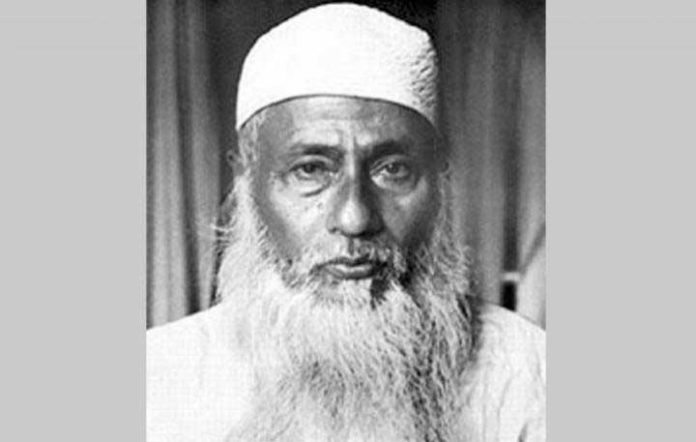DHAKA, Nov 16, 2020 (BSS) – The 44th death anniversary of veteran politician Maulana Abdul Hamid Khan Bhasani will be observed tomorrow in a befitting manner.
Popularly known as “MajlumJananeta”, the leader of the downtrodden Maulana Bhasani, passed away on November 17 in 1976.
President Abdul Hamid and Prime Minister Sheikh Hasina issued separate messages on the occasion of the 44thanniversary of death of Maulana Bhasani, paying glowing tributes to the late legendary political figure of the country.
In his message, President Abdul Hamid expressed optimism that the ideals of Maulana Bhasani will inspire the new generation to be imbued with patriotism and the spirit of the War of Liberation.
“Maulana Abdul Hamid Khan Bhasani gave national interests priority rather than personal interests. In personal life, he was simple, self-effacing and parsimonious,” said the President.
Prime Minister Sheikh Hasina in her message said Maulana Bhasani had struggled throughout his life for establishing the rights of the working-class people. Maulana Bhasani was always against repression-oppression of Pakistani rulers, she said, adding that Bhasani played a unique role in flourishing Bengali nationalism.
“Maulana Bhasani had ideological alliance and political closeness with Father of the Nation Bangabandhu Sheikh Mujibur Rahman. Bhasani struggled for a progressive, democratic and non-communal Bangladesh,” the Prime Minister added.
Abdul Hamid Khan Bhasani, born in 1880 in Dhangara in Sirajganj, was the son of Haji Sharafat Ali Khan. He gained immense popularity among peasants.
He is regarded as the proponent of secular and left-leaning politics in Bangladesh.
Bhasani was the founder and president of Pakistan Awami Muslim League which later became Awami League (AL). He also formed a progressive political organisation called National Awami Party (NAP).
Bhasani played a very significant role in the 1969 movement against Pakistan, which eventually led to the collapse of the Ayub regime and the release of Bangabandhu and other co-accused in the so-called Agartala conspiracy case.



